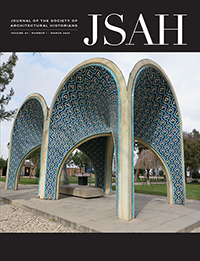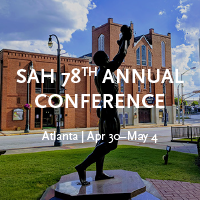For the second time in a decade, doctoral students in MIT's History, Theory and Criticism of Architecture and Art program (HTC) have garnered five of the top national honors available to graduate students conducting research in these areas.
The four students have been awarded:
- the Wyeth Fellowship from the Center for Advanced Study in the Visual Arts;
- a predoctoral fellowship from the Getty Research Institute;
- the Luce/ACLS (American Council of Learned Societies) Fellowship;
- the Chateaubriand Fellowship; and
- the Graduate Research Fellowship from the Minda de Gunzburg Center for European Studies at Harvard.
The five awards are among the field’s most prestigious in the United States, drawing hundreds of applicants, according to Arindam Dutta, head of the HTC program and associate professor of architectural history.
“HTC’s continued success speaks both to the talent of students that we continue to attract, as well as the devotion and dedication of our faculty,” Dutta says. “The MIT environment is another factor, pushing students to pursue research that is continually breaking norms. And taking risks has clearly brought our students this well-deserved recognition.”
The four students are:
Michael Kubo (Wyeth Fellowship)
The Center for Advanced Study in the Visual Arts (CASVA), part of the National Gallery of Art, awards the
Wyeth Fellowship to support the advancement and completion of a doctoral dissertation that concerns aspects of art of the United States, including native and pre-Revolutionary America. Kubo’s research traces the rise and international extension of collective and corporate architectural practices in the United States after World War II.
Michael Kubo joined SAH in 2015.


